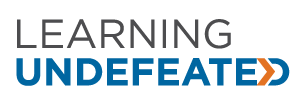from Baltimore Business Journal | June 12, 2020 read it >
Baltimore is a national hub for STEM innovation, from medical research and engineering to world-renowned universities and hospitals. Our region’s brightest minds are working right now to develop a Covid-19 vaccine and find new ways to leverage technology as we adapt to our rapidly evolving world.
But we need to cast a long-term vision if we’re going to continue to build a strong, diverse pipeline for the future — and that starts with education.
One of the biggest implications of Covid-19 has been the closing of in-person schools and the almost overnight shift to distance learning. In disaster situations where education is impacted, science, technology, engineering and math (STEM) subjects are often the hardest hit due to their hands-on nature. We witnessed this in 2017 when Hurricane Harvey hit Texas and many schools didn’t have the environment or resources to provide students with practical lab experience.
And for students who don’t have access to key resources or technology, it’s an even greater challenge that perpetuates a cycle of inequity in STEM education and opportunity, particularly in under-resourced schools and communities of color.
According to a 2018 Pew Research study, African Americans comprise 11% of the U.S. workforce, but represent only 9% of STEM workers. Hispanic individuals make up 16% of the workforce, but only 7% of STEM workers.
As industry and community leaders, it’s our responsibility to ensure that the STEM pipeline isn’t another tragic casualty of Covid-19 — a crisis that has highlighted our need for STEM professionals at every touchpoint, from front-line health care workers to chemists, lab technicians, researchers and software developers. That means it’s also our responsibility to support students through the pronounced challenges of virtual learning, ensuring the movement to diversify the STEM pipeline continues to grow.
Here are a few ways industry leaders can help to secure the STEM pipeline in Maryland and close the education gap.
Share your story
Unfortunately, many students don’t know the wide range of career paths and opportunities in STEM. And due to the disproportionate representation of African American and Hispanic individuals in STEM fields, many students may struggle to see themselves in those jobs.
Find ways to highlight individual career journeys and educate students on the diverse opportunities available in STEM. Many of our Maryland partners, including AstraZeneca, Emergent BioSolutions, Novavax, the University of Maryland BioPark and DAP, actively support this work through partnerships, video and social media campaigns, and mentorship events. Be deliberate about amplifying diverse voices so that students feel represented and can cultivate an expanded view of the STEM field.
Offer STEM resources and experiences
Consider how you might offer your facility as a virtual or physical field trip destination, or how you can share additional resources and equipment for teachers to facilitate more hands-on learning experiences.
For example, Emergent BioSolutions routinely offers their facilities for student tours.
Sean Kirk, executive vice president of manufacturing and technical operations for Emergent BioSolutions, told me, “We want these students to see a world-class biomanufacturing operation up close to open their eyes to opportunities they never could have imagined. Inspiring the next generation and equipping them for the future is not only important for our community, but is critical for the future of our world.”
Creatively engage local schools
As uncertainty looms around next school year, consider ways to adapt your support for the online classroom. For example, partner with a local school for a virtual career speaker series, or establish a mentorship program that allows students to explore their interests, ask questions and build important connections.
Develop an apprenticeship program
There’s no better opportunity for students to learn about a career or company than to experience it first-hand. Many STEM programs require students to have meaningful, hands-on experiences to graduate. Intentionally investing in just a few individuals each semester could have a critical impact on both your organization and the world.
Whether it’s hosting a virtual speaker series or creating an internship program, it’s critical that industry leaders invest time and resources in this effort. It’s going to take all of us to tackle the education crisis head-on and continue to grow a strong, diverse STEM pipeline.
Brian Gaines is the CEO of Learning Undefeated, a Maryland-based nonprofit organization that provides STEM education opportunities for underserved communities.






